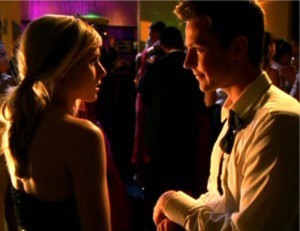Lorenda Christensen's Blog, page 17
May 20, 2013
Book Launch Party for Terri Osburn!
Today is the book launch party for Terri Osburn. Yay!
Champagne is on the house, so grab your glass.
Good morning, everyone. Thanks for joining me in celebrating the launch of Terri’s debut novel, Meant To Be.
Isn’t this a fabulous cover? It says a lot about Terri’s story, and here’s the fantastic back cover blurb:
Beth Chandler has spent her whole life pleasing others. She went to law school to make her grandparents happy. She agreed to marry her workaholic boyfriend, Lucas, to make him happy. And, despite her fear of boats, she took a ferry to see Lucas’s parents just to make them happy.
While suffering through a panic attack on the ferry, Beth meets a tall, sexy stranger who talks her down from her fear—and makes her heart flutter in the process. Soon, she has a new reason to panic: her gorgeous, blue-eyed rescuer is Lucas’s brother, Joe. But could she ever leave her fiancé for his own brother—even if Lucas is more focused on making partner than on making their relationship work—and even if Joe turns out to be everything she never knew she wanted?
Welcome, Terri! Let’s start out with THE CALL? How did you learn your book was going to be published? Were you at work or at home? Did you scream? Did you cry? Did you have to sit down? Come on, spill all. : )
I was at work and I still feel guilty for my reaction. You’d expect the screaming and crying, but no. I was so calm, my agent asked if I was all right with a hint of disappointment in her voice. For some reason, my brain just shut down. Which is the total opposite of what happened when I received the call I’d finaled in the Golden Heart. I think by August 2012, I’d been so overwhelmed with awesome news, my brain simply could not take anymore.
I’ve promised to scream the next time she calls to say we landed a contract.
Meant To Be, is the first in a series of books set on Anchor Island. How many books will be in the series? Please tell us why you chose the location you did.
There are three books in the series and all the main characters are related by blood, marriage, or have become family of the heart. Anchor Island is described as a remote island at the base of the Outer Banks. Anyone familiar with the area might recognize the layout and details as they are completely based on a real place. Ocracoke Island is indeed a remote island at the base of the Outer Banks. Accessible only by ferry (and air, but only when really necessary.) The main industry is tourism, but this is not your typical tourist town. No shopping malls. No chain stores or restaurants of any kind. The island is a national treasure and protected as so. If you’re looking for a place to truly get away, you might want to schedule your next vacation on Ocracoke. I visited the island three years before I ever started this book. The place stuck with me that much.
Now I’m sure we all want to know…is this from real life? Did you have such an experience on a ferry? Do you have any research stories to share?
I mention above I have visited the real island Anchor is based upon, but I WISH I could say I met a hunky fishing boat captain and fell in love. Alas, I did not. I’m still searching for my own HEA, but don’t fret for me. I’m having a fantastic time writing them for my imaginary people. Oh, but the dog in the book is real. Or was. Dozer was a Chow-mix I had at the turn of the century (heh) that has crossed the rainbow bridge. But I loved that I could immortalize him in the pages of my book.
Why do you choose to write in this genre? Do you think you might ever try anything else? If so what?
We all know the old adage—never say never. Who knows what I’ll write in the future. I can’t imagine writing anything else, but then ten years ago I never imagined I’d be a published author let alone have written a book. I write Contemporary Romance because these are the stories that come to me. The characters show up, they tell me their names, let me know where we are, and we tell the story. I suppose if a devilishly handsome charmer of a Duke ever shows up, I’ll be venturing into new territory. (This is NOT a request to the universe. Seriously. No dukes.)
Can you tell us about your journey to publication? How long did it take you? Do you have an agent, want an agent, or are you happy going it alone?
My story isn’t as long as some, but I have been at this a while if you count the book I tried to write twenty years ago. Ironically, that was a Western Historical (they were all the rage then!) with a gambling heroine strapping a six shooter to her thigh and determined to avenge her father’s death. Original, I know. This current journey started in 2006 when I joined the Eloisa James Bulletin Board and then got involved in the Avon Fanlit contest. By the summer of 2007, I was trying to write a book (which I was completely clueless about) but also working on my Bachelor Degree. I joined RWA in 2007, attended my first Nationals in 2008, finished my degree in 2009, finished my first book in 2010, became PRO in 2011, and finaled in the Golden Heart in 2012 (with my 2nd ever MS.)
That put me on the bullet train to publishing. Before the conference in July, I’d already signed with Nalini Akolekar of Spencerhill Associates, and by Labor Day I had a contract. Pretty sure by the end of 2013 I’ll have a full head of gray hair and a drinking problem.
Are there any movies, books, or television shows that spark your creativity? Do you ever watch something and think ooooh, there’s a shiny little thing that I could twist and approach differently and then…?
Movies inspire me all the time. In fact, an element of MEANT TO BE is influenced by the Steve Carell movie Dan In Real Life. One brother brings his girlfriend to meet the family and the other brother ends up falling in love with her. That’s pretty much a one sentence tag-line for MTB. I’m working on a new proposal now and it’s sort of a book/movie combo. Hope Floats meets Susan Elizabeth Phillips’ AIN’T SHE SWEET. Fingers crossed it works out.
Thanks for sharing your good news with us today, Terri. Is there anything you’d like to share that would surprise people who think they know you?
What might be surprising? Good question. Maybe that I’ve been a NASCAR fan since I was little? That I have a degree in the music business and was a DJ for eight years on country radio? Oh, I know. For one afternoon many years ago, I was the Easter Bunny.
Well, dear readers, this is a wrap. But before you leave, there’s a chance to win a signed copy/ or electronic version of Meant To Be. Leave a comment and you’ll be entered in our drawing.
Terri may be contacted at: Terri@TerriOsburn.com or go to my website at www.terriosburn.com and find the links to all her social media sites.
May 14, 2013
GH Finalist 2013: Bonnie Staring
Please welcome Bonnie Staring to our Firebirds blog. Bonnie is excited (and terrified) to be a 2013 Golden Heart® finalist in the Young Adult category with her manuscript, CAMP AWAKENING. When not writing young adult fiction, she works as a freelance copywriter, uses a lot of coupons and has appeared on a few game shows. (Don’t get too excited—they were Canadian game shows, so she’s still using those coupons.) Bonnie lives in Toronto, Ontario with her loving husband, the kitten of mass destruction and five houseplants.
Bonnie would like to thank the contest judges, critique partners and literary agents who told her that the main character in her first submission-worthy romance novel sounded like a teenager. Seriously. They were totally right.
Find her on Facebook – http://www.facebook.com/bonniestaring
Twitter – @Bonnie Staring
http://bonniestaring.blogspot.com
Thank you so much for having me here! Now, before I chicken out, there is something I must share with you:Fear can be your friend.I hear you snickering. When someone first said that to me, I thought they’d been sipping crazy sauce. Luckily, that person was nice enough to explain that sometimes fear is our go-to emotion when we’re about to step out of our comfort zone.As writers, we love to add descriptive labels to our fears. Some claim a fear of success, a fear of failure or the dreaded fear of being discovered as an imposter.
No matter what we call it, fear pops up like a weasel or a burnt piece of toast when we least expect it. Let me share some fears that I’ve experienced (and maybe you have too):
The fear of rejection
The easiest way to avoid rejection is to not enter a contest, send a query or actually reply to a request with your partial or full. But if you don’t embrace the energy that fear is giving you to get over it, you could end up experiencing something like:
The fear of wasting your time
When this fear strikes, it’s telling you to re-evaluate how you define success. Are the goals you have actually within your control, or are you aiming for pie-in-the-sky-not-up-to-you achievements? Focus on the writing—doing anything else is the true waste of time.
The fear that the validation you’ve received is a mistake
Yeah, I experienced that when my name didn’t appear on the GH finalist list until an hour after getting the call. Thankfully, my excitement over being a finalist completely outweighed that fear, and I continued to dance around the house doing the odd jumpy-clap when I wasn’t on the stairs.
The fear that your words suck
Thanks to RWA, I’ve met tons of talented authors who tell me that this fear never, ever leaves. It’s the smart writer who develops a game plan for dealing with those times of suckage.
For me, I use music (anything from the ‘80s) to take me to a happier writing place. And when the going gets tough, Nora’s quote “You can’t revise a blank page” is my inspiration. The words may start out as crap, but even oatmeal cookies look like barf before you bake ‘em.
So what fear do you experience most as a writer, and how do you defeat it?
Speaking of fears, I’m afraid that I’ll be away from a computer until after lunch today, but I promise to drop by and check out all the fear action as soon as I can!
May 13, 2013
Robena Grant’s Launch Party
Robena Grant’s launch party starts…..Now!
Hi everyone, thanks for joining me in celebrating the launch of Robena Grant’s debut novel, Unlock The Truth.
I think this great cover tells a lot about Robena’s fabulous tale, but here’s the fantastic back cover blurb:
Dena Roman needs closure. Three months ago, her sister’s murdered body was found in the California desert. When a second body is found at the same site, Dena jeopardizes her public relations position to go undercover and investigate. But falling for the main suspect isn’t part of her plan.
Zeke Cabrera needs help. He sold a portion of his family’s Three C’s Estates to keep his citrus farm afloat, but when bodies are unearthed on the site, he’s suspected of murder. Help comes in the form of a communications expert who makes all the difference in his life and business—and in his heart.
Amidst an attack on her life and run-ins with a cantankerous foreman, Dena digs for the truth, even as she forms a strong bond with Zeke. But can their newly found love survive all the deep secrets hidden at the Three C’s Estates?
Welcome Robena! First off, I think we are all dying to know where you were, what you were wearing, and what dance you performed when you got THE CALL?
I got an email from the editor, at The Wild Rose Press, who had been assigned to the earlier stages of the query process. Knowing me and the time of year, I’m certain I would have been wearing one of my “lucky writing” summer dresses. They hide a multitude of sins and you don’t have to wear a bra. I was seated at the computer, and I do remember leaping out of the chair and running around the house grinning like a fool. I was most likely doing some version of the white man’s overbite, or the funky chicken…you know, picture old lady dancing.
Maybe with enough alcohol we’ll get you to recreate that unique dance for us in Atlanta next summer. I bet you felt like dancing again when you found out your books were being picked up by Amazon’s KDP program before your release date. How did that come about?
The KDP Select program is something the publisher is trying out for some of the authors. It’s an opportunity to reach more readers via the big machine that is Amazon. After the Amazon three month exclusive, the full release: print and all digital formats, will happen on May 10th.
So Unlock the Truth is the first in a series of books all set in the California desert? Because I have to say, your love for this area really shined through! I felt like I was right there, feeling the heat on my shoulders right along with Zeke and Dena.
Yes. Desert Heat series (spin offs, really): #1 Unlock the Truth, #2 The Blue Dolphin, #3 Desert Exposure. (My Golden Heart finalist book was #3 and it will be available later in 2013.) I’ve lived in the Coachella Valley in Southern California’s desert communities for about eight years. It’s definitely an oasis, and despite the intense heat in summer it’s a delightful climate. I never knew I would grow fantastic roses, or have grapefruit, tangelo, and lemon trees with such an abundance of fruit.
After reading this great book, I’d like to know if you’ve ever been in the backseat of a police car? (For research purpose only, of course ;0)
Ha ha! Nope. But I did interview a local deputy from the Riverside County Sheriffs’ Department. He was disappointed that I gave the town the fictional name of Rancho Almagro. I told him that was about karma, and not wanting to bring crime into my home town. He kept asking me questions and then giving me ideas…it was like he wanted to write the book.
Were you one of those overly bright children who could write complete plays and act them out by the first grade, or did your characters start talking to you later in life?
We used to create plays. I have three brothers and three sisters, so yeah, we had a full cast. : ) I was the creator because I had the greatest knack for stretching the truth. But writing novels came to me late in life.
So tell us a little about your road to publication. Long and bumpy, or short and sweet?
Long. I’ve been kicking around RWA for ten years. I’d attempted to get published the traditional way, believing I should be published by a big NYC publishing house, or it wouldn’t count. It hit me in late 2011 that I was hanging on to a dream that maybe wasn’t mine. That I only thought it was. In January 2012, I sent out my first small press inquiry to The Wild Rose Press. Within six weeks that inquiry progressed to a full manuscript request. Then the GH final, then the first contract arrived, followed shortly after by the second and third contracts. I’ve been so busy ever since that I haven’t had time to pursue finding an agent.
Lastly, where do your story ideas come from? Sorry, just being a brat. We all cringe when our friends ask that question, right? What I really want to know is what we can look forward to seeing from you in the future?
I’ve always been a thinker and a daydreamer. Most of my ideas come from when I’m out walking around the lake. I have two contemporary romances written, and one in rough draft. They’re what I call international adventure stories with a little thread of magical realism. A change of genre definitely, so, this might be where an agent would be of most help.
I really enjoyed this book so I’m looking forward to all that and more, Robena! Thanks for sharing your good news with us today.
Okay Firebirds and friends, here’s your chance to win your very own signed copy/ or electronic version of this fantastic book. Just leave a comment or say hi and you’ll be entered in our drawing.
You can contact Robena at: robenagrant@aol.com
Or check out her web page at: http://robenagrant.com/
May 12, 2013
2013 GH Finalist: Piper Huguley
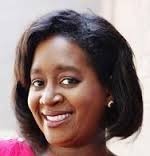 Please welcome GH Finalist Piper Huguley to our Firebird blog! Piper is an aspiring author pursuing publication for her inspirational historical romance fiction. She is a 2013 Golden Heart finalist for her novel, A Champion’s Heart—the fourth book in The Bledsoe Sisters series. She is a member of RWA, GRW, FHL, ACFW and CIMRWA.
Please welcome GH Finalist Piper Huguley to our Firebird blog! Piper is an aspiring author pursuing publication for her inspirational historical romance fiction. She is a 2013 Golden Heart finalist for her novel, A Champion’s Heart—the fourth book in The Bledsoe Sisters series. She is a member of RWA, GRW, FHL, ACFW and CIMRWA.
Facebook: https://www.facebook.com/#!/piperghuguley
Twitter: @writerpiper
Blog: http://piperhuguley.com
A Champion’s Heart
1935 Pittsburgh: Aptly-named Champion Bates is an up and coming Negro contender who harbors a secret—he could lose his eyesight if he keeps boxing. He is tormented by a love lost–at the moment of their elopement; he abandoned his childhood sweetheart, Cordelia “Delie” Bledsoe for his career. Seven years later, Delie needs financial help to sustain her orphan’s home. To prove his love, he will fight—one more time—and give her the winnings to maintain her heart’s desire. Will Delie rediscover her love and forgive him in time to prove she has A Champion’s Heart?
What’s going on with historical romance?
If you haven’t heard, since the beginning of the month, historical romance has folks talking. Lynn Spencer kicked things off in the All About Romance blog.
The fabulous Evangeline Holland (my FB writing group buddy) continued the discussion on her blog.
Dear Author got into the fray and weighed in with the provocatively titled: “We should let the historical romance die.” I commented there:
Even in the Rita chat this past Thursday featuring this year’s Rita historical romance nominees, the first question to any of the nominees (Sarah MacLean), was: How did she feel about the Dear Author controversy?”
For those of us who are nominated in this category this year in the Golden Heart, we have a stake in this. And maybe even previous years. As I said in the Dear Author column, if you consider the Golden Heart nominees as “up and comers” then we have something to say about up and coming into a subgenre that Jane of Dear Author thought should die, so that it can rise up, phoenix-like, and reinvent itself.
For me, since I have been on a quest to fill what I considered to be an empty niche, my thought was to throw caution to the wind and to write whatever I wanted to read. And I did. And I came to find that there is no crazed throng waiting breathlessly for the next Bledsoe sister story to come forth from my old 2007 Toshiba laptop. Yikes.
Some solutions have been offered to help historical romance back to prominence, mainly along the lines of increasing the variety of the genre. This solution has received some acceptance, but it is risky. Until some of us get out there to see how the sales shift things, we don’t really know if this is the answer.
So we must batten down the proverbial hatches, weather the storm and continue to write what we love. Historical Romance will be back someday. I don’t know when or how the next breakout will be (and I pray it will be one of us), but when it does, we need to be ready for it. And to hearten any of my Golden Heart sisters who have been nominated this year or previous years and may not be at the receiving end of that agent/editor love, I offer the words of Jeanne Lin. Lin, a previous Golden Heart winner who now publishes her Chinese Historical Romance with Harlequin, told me via twitter this week: “Strangely, this does not frighten me too much. We write unusual historicals. We’re dying from the moment we’re born.”
Weigh in: is historical romance dying or is it just reflective of a cyclical trend? What might be the answer?
May 9, 2013
11 Things Writers Need
When that wasn’t what I found, I made my own list:
Full time housekeeper/cook
Full time gardener (just because we have a lot of land)
A discreet collection of smart people who pop up to help me brainstorm
A lovely person who comes in once a week to prioritize my schedule.
Someone to read all my email.
Someone to be far wittier than I could ever be on Twitter and Facebook
Someone to explain Tumblr and Pinterest to me. Yes, I get with the
photos, but how’s this helping me sell my book—?
Someone to revive my blog from the brink of death.
Someone to hand-sell my book.
Someone who knows exactly when to post a glowing review so that I read
it within 20 minutes of deciding I’m a talentless hack.
Ross. Seriously, every writer needs my husband–IT guy, proofreader,
publisher, promoter, and super-nice man. You just can’t have mine. I can
live without the other ten things, I but need him the most.
Now that the drug-haze is receding, I’ve realized I was just being piggy there. Many of us have friends, critique partners, and yes, spouses, to help us with this stuff.
What are the 11 things we need that only we can supply for ourselves?
A sense of our own writing. We’re not all writing the same books, so why do we compare ourselves (our sales, our deals, etc.) to other writers? We need to know what we write, who it might appeal to, and why we love our own stories.
Knowledge of the industry. The days of there being only one way to success are gone. Sure, an agent can sign you, shop your story around, and sell it to the highest bidder. But there are other pathways to success.
Knowledge of the economics of the industry. If I sell 10,000 copies of a single-title contemporary romance, am I a success or not? To mainstream publishers, maybe not. Self-published? I could well be a success. Figure out what the significance is of royalty rates vs. advances, sell-through rates, etc. Yes, your agent should know, but you should too.
A realistic career goal. “I want to be the next Eloisa James” isn’t a career goal. “I want to be able to retire from my full-time job in three years” is, provided you work out the numbers and have a sense how you’re going to get there.
A sense of humor, or in the alternative, a thick-skin. That idiotic one-star review is funny…until I get one. Guess what. It’s still funny. And if I can’t laugh, I need to pull on the thick skin and weather out the pain. Commenting on it in any public forum can only make it worse.
The ability to see what good-but-not-great reviews are telling you. There’s feedback there, particularly for the just-starting-out writer. Be gentle with yourself, but when you’re ready to push your writing to the next level, reputable reviews can be very informative.
The strength to revise. I’m beginning to believe that what I’m really learning in my MFA program isn’t how to write, but how to revise. Particularly, how to take what I’m currently doing, see what’s missing, see how others do it, and get on with the job of supplying it.
Ambition. Someday readers will clamor for our books. For now, we need to supply them regardless if there’s any clamoring going on. Be ambitious—one book won’t make a career but it can always start it.
A love of reading. I used to think this was universal and constant. Then I started writing. It’s harder now to love a book in that untethered, floating way. But I have to love reading because it’s the wellspring for my own creativity. Whether you read in your genre or out, reread old favorites or find something new, read your friends’ books or scope out new-to-you writers—keep reading.
Perspective. There are so many places to park our gaze—Amazon rankings, Goodreads ratings, review site grades—that we have to keep perspective. We’re writers, which means the one thing we can do is write. Write a better book, tell a better story, dream up a more compelling couple…the other things will fall into place.
Humility, not fear. Here’s the difference: Fear is thinking, “I’m never going to do better.” Humility is knowing, “I can’t do that yet, but I can learn how.” Humility reminds us were not there yet, but it retains all the knowledge, strength, hope and and ambition to get there.
May 5, 2013
GH 2013 Finalist – Nan Dixon
Please join me in welcoming Nan Dixon to the Firebirds blog today. Nan is a four-time Golden Heart® Finalist (double finalist in 2013). She lives in Minnesota with her hubby and one crazy cat, keeping track of her five children’s lives. She’s ecstatic that the corporate world of finance and pharmaceuticals no longer consumes her life and she can write full-time. She’s been an actress, singer and dancer. Loves to ski, both water and snow, and was the captain of the University of Minnesota golf team. She sits on the board of both her local RWA chapter and a dance company.
She’s a reformed contest junkie, having won the Contest Diva award for most finals—18—for the contest year 2009. In 2012, SOUTHERN COMFORTS won The Molly, Great Expectations and Fire and Ice. ONE FINAL NIGHT placed second in Great Expectations, The Marlene, and Fire and Ice. And POETIC JUSTICE placed second in the Daphne awards.
She is now represented by Laura Bradford of the Bradford Agency.
Find her on twitter – @nancyevertz
Facebook – nan.dixon.7@facebook.com
http://nandixonblog.blogspot.com/ and www.nandixon.com
I love food!
I confess. I watch Food Network, take the magazine and even try out their recipes. Top Chef, Iron Chef, Master Chef, Chopped—they are guilty pleasures in my life. Give me the chef’s taster menu in a restaurant and I’m in heaven.
Apparently my love of food has leaked into my books. My characters love to cook.
 I didn’t realize I spent so much time in my characters’ kitchens (probably more than in my own) until my critique partners told me I couldn’t bring in another scene with food unless I brought in samples. This was while they were reviewing SOUTHERN COMFORTS, my 2013 Golden Heart Finalist manuscript in Contemporary Series category.
I didn’t realize I spent so much time in my characters’ kitchens (probably more than in my own) until my critique partners told me I couldn’t bring in another scene with food unless I brought in samples. This was while they were reviewing SOUTHERN COMFORTS, my 2013 Golden Heart Finalist manuscript in Contemporary Series category.
In SOUTHERN COMFORTS, Abby Fitzgerald longs to open her own restaurant. Unfortunately, her dream is stuck on the back burner until she and her sisters finish converting their Savannah mansion to a bed and breakfast. She juggles multiple roles–B&B manager, chef and caterer.
Grayson Smythe won’t let another woman fool him. If he can’t find a girlfriend that cares more for him than his net assets, he’ll avoid relationships. Fed up with Boston, he heads to Savannah to turn a newly purchased warehouse into condominiums. Six-months of solitude and excellent cooking are just what he needs.
Here’s an excerpt from SOUTHERN COMFORTS.
Gray sampled a small piece of lamb chop and then a forkful of potatoes. He followed up with crisp green beans. The flavors melted in his mouth. Closing his eyes he moaned, “I’ve died and gone to heaven. You’ll probably have to marry me.”
She laughed. A deep, mellow sound he felt down to his groin.
He wanted to reel the words back into his mouth. Why would he say something like that to a woman—especially one in need of money? He pushed his wine aside. No more drinking if comments like that spilled from his lips.
“Sorry,” she said. “If someone’s marrying me for my cooking, Nigel’s first in line.” She took a bite of her lamb, chewed slowly and didn’t offer any further explanation.
“Who’s Nigel?” Maybe the guy had enough money to fund Abby’s restorations.
She sipped, closing her eyes as she swallowed. “This wine may be slightly bold for the lamb, but the vintage was such a great find.”
“Come on,” he said. “You’ve piqued my curiosity. Who’s Nigel?”
“Oh.” She did the sensuous eating pattern with her beans and then her lamb, her lips wrapping around her fork. Two bites of her food and he was uncomfortably aroused. Did she know that would be a man’s reaction?
Why do I use food? Food encompasses so many senses: smell, sound, color, texture and taste. But best of all, food can also be sensual. And the analogies are so much fun: I couldn’t resist using—She sank back into the chair like a fallen soufflé.
So what do you use to intensify your hero and heroine’s attraction?
May 1, 2013
Agent Interview: Marie Lamba
Please welcome my fabulous agent Marie Lamba to the blog. She joined The Jennifer DeChiara Literary Agency as an associate agent in 2011 and surprised me one morning in January 2012 with THE CALL. I can’t say I was coherent, but hey, I like surprises.
Below are Marie’s submission guidelines from the JDLA website (but always check the website before submitting in case the guidelines have been updated):
I am currently looking for
Young adult and middle-grade fiction, along with general and women’s fiction and some memoir. Books that are moving and/or hilarious are especially welcome. I am NOT interested in picture books, science fiction, or high fantasy (though I am open to paranormal elements), category romance (though romantic elements are welcome), non-fiction, or in books that feature graphic violence.
To submit
Please email a query to marie.jdlit@gmail.com and put “Query” in the subject line of your email.
For queries regarding children’s and adult fiction, please send the first twenty pages in the body of your email, along with a one-paragraph bio and a one-paragraph synopsis.
For queries regarding a non-fiction book, please attach the entire proposal as a Word document (the proposal should include a sample chapter), along with a one-paragraph bio and a one-paragraph synopsis of your book in the body of your email.
STEPH: Welcome to the Firebirds blog, Marie!
MARIE: Thanks for having me. 
STEPH: As one of your clients, I know you’re an editorial agent (which I love!). Can you explain what the revision process is usually like with your clients?
MARIE: Right when I make “the call,” I’ll be very upfront with my potential client about any adjustments I may see needs to be made before a manuscript goes out on submission. These are typically big-picture changes like the middle sags a bit, or the main character’s love interest needs to be less perfect, or the ending needs some more development. I make sure the writer is open to changes like this, and that we are both on “the same page,” to use a literary pun.
Then, once the writer signs with me, I’ll do a read through of the manuscript tracking suggested edits along with my comments. Since I’ve also worked as an editor and I’m also a published author, I’m able to really articulate to my clients not only what may not be working, but also how things might be fixed. My authors understand that they don’t have to do exactly what I say, but that I do want them to address my concerns in some way in their revision. Sometimes it takes several passes between us and even some phone calls to nail down the final version for submission. Then it’s time to send it out and rock editor’s socks!
STEPH: Can you give us a glimpse of what your typical day as an agent consists of?
MARIE: No day is completely typical, but… Up at 6 a.m. for queries and coffee #1. Then around 7:30 a.m. or so it’s coffee #2 as I dig through my client emails and follow up with them. Next I will handle some longer-range stuff on my plate, such as doing interviews (like this one!), nailing down conference appearance details, or upcoming editor appointments. I usually have a client manuscript on-deck for a read-through/revision, so I’ll work on that during more quiet moments.
Plus when I’m subbing a client’s work, I’ll be researching the perfect editors, making up a tight pitch, and then I’ll be on the phone pitching. Once I’ve made my pitch to editors, I then follow up by sending the manuscript out, plus I update my client. In the evening and on weekends I’ll read through requested full manuscripts in my inbox. Oh, and at some point during the week I also put together a weekly Agent Monday post for marielamba.com, and I do periodic newsletters for all of our clients filled with marketing tips. I’ve worked in P.R. and been a book promotion manager for a publisher, plus I’ve been an author in the marketing trenches myself, so I definitely have some tips to offer our clients.
STEPH: Agent life definitely sounds busy! Speaking of queries, what are some of the most common mistakes you see?
MARIE: Not following my guidelines. That’s a biggie! People send me things I say I definitely do not want, and use the wrong format to send pages, or send me no pages, or send me the full manuscript. It’s a shame – and it equals a rejection.
For those writers who do follow my guidelines and include the first 20 pages pasted in at the bottom of the query, too often those pages show their book is beginning at the wrong spot. Too many characters who are waking up, or are driving somewhere, or are in the process of moving to where the story really begins. Also, there is way too much telling in opening pages. We don’t need to know all the background and details at the outset, we need the story to pull us in.
STEPH: I’m extremely lucky in that I was able to meet you in person while you attended a conference. Do you have any conferences or events scheduled for this upcoming year?
MARIE: I was the lucky one!  I’m adding in conferences all the time, so folks should click on my Appearances page over at marielamba.com for the most up-to-date schedule, but here are some slated ones:
I’m adding in conferences all the time, so folks should click on my Appearances page over at marielamba.com for the most up-to-date schedule, but here are some slated ones:
September 21-22, 2013, MD/DE/WV SCBWI Fall 2013 Conference, Lucky 13 at the Bishop Claggett Center in Buckeystown, MD.
Friday, October 11th, 2013, 11 a.m.-4 p.m., YA and Middle Reader Novelists, Spend the Day with Assoc. Literary Agent Marie Lamba. Part of the Push to Publish Conference at Rosemont College in Rosemont, PA, sponsored by Philadelphia Stories.
STEPH: Great! Do you have any advice for writers who are nervous about pitching their manuscripts at conferences?
MARIE: Don’t think of this as your one and only shot. That’s way too much pressure and will mess with your head. Just enjoy meeting that agent as a person, and think of it as sharing your idea with a fellow book lover. If you are very nervous, then definitely bring a print out of your pitch to read. Most agents will understand, and if they don’t, do you really want to work with them? If there is extra time, feel free to ask some questions of your own.
STEPH: So there’s one last question, and it’s one I have to know the answer to. Cupcakes or chocolate?
MARIE: Oh, now that’s an easy one: chocolate, of course!
STEPH: Thanks for the interview, Marie!
So writers, polish those manuscripts and queries. If you think Marie’s a good fit for your work, don’t forget to study those submission guidelines. Good luck!
April 28, 2013
Veronica Mars and me
I owe my Golden Heart necklace to the TV show Veronica Mars.
No, really.
See, when I switched some years back from screenwriting to fiction, I thought I should write something literary. I have no idea why. It’s not like I read lit fic that often. But that’s what I did. I wrote what in retrospect should have been a high concept romance, but I crafted it as a slow, internal literary musing and then wondered why my then-agent kept forwarding me complimentary rejections from editors who found it too slow and internal.
Around this time, I watched the first two seasons of Veronica Mars. Devoured, more like. I loved Veronica’s sharp edges and humor, her smarts, her vulnerability, her pain. Loved the intense backstory and her need to fix what was wrong. I was especially captivated by the complex layers in her relationship with her friend-turned-enemy-turned-great-love Logan Echolls. So captivated, I did something I would never have guessed I’d do: I became involved with the fan community. I even dabbled in fanfic. And I had a blast doing it.
I didn’t know it then, but I was trying on a new voice. A snappier voice that worked better for me. A contemporary romance voice.
After that, I knew my next novel needed to be different, so I tried writing a mystery. Veronica Mars is, after all, a mystery series. The romance in that one was pretty good. The rest? Not so good. Turns out I’m not a mystery writer.
Two books, written and shelved. One career, stalled.
Late one night four years ago, I couldn’t sleep. I gave up trying around two a.m. and went downstairs. Ensconced in my armchair in the quiet heart of the night, my only light the steady glow of my laptop, I came up with a new story. The kernel of the idea was from a fic, though the characters and the situation were entirely different. He’s not a bad boy and she’s not a snarky private eye. Even the details of their relationship are different. Still, I was finally working with the right kind of material, using that initial spark in the right way.
I wrote that first draft in five weeks. I loved every minute of it.
Of course, I then rewrote the manuscript several times. It was, after all, my first romance. It turned out I had a lot to learn, despite having read romances my entire adult life. Nevertheless, I was hooked. I’d finally found a good fit.
That book was NO PEEKING, which made me a Firebird and won the Golden Heart for contemporary romance last year. My fanfic-inspired fizzy confection of a novel, who’d’a thunk?
I’ll probably never write another literary novel. They’re not as much fun, and they’re not as much me.
Thank you, Rob Thomas. You led me to my voice.
My question for you: Have you ever hooked into a book, movie, or TV show that draws you in and pushes buttons you didn’t even know you had, making you an unabashed, slightly obsessed fan? And if so, do you have any idea what it is about that particular story that makes it work so well for you?
April 25, 2013
Interview with Helen Carey
Initially published by Orion Books, a couple of years ago Helen took the plunge and turned independent and as I know many Firebirds and others are considering this (or have bravely taken it!) I thought I’d let her tell us her experiences.
 It’s always interesting to know where somebody comes from, so imagine yourself in the very beautiful and peaceful west of Wales, in an old stone farm overlooking the Irish Sea. When not writing her own novels, she paints (she runs her own studio with her husband) and also teaches writing at the University of Wales, with students coming from all over the world.
It’s always interesting to know where somebody comes from, so imagine yourself in the very beautiful and peaceful west of Wales, in an old stone farm overlooking the Irish Sea. When not writing her own novels, she paints (she runs her own studio with her husband) and also teaches writing at the University of Wales, with students coming from all over the world.
When Helen and I first met at a meeting of the UK’s Romantic Novelists Association, the book world was still in its predictable state; write book, find agent, get publisher. Helen was taken up by a great publisher, Orion, which has since been swallowed up by the mega Hachette Livre group. She brought out three books which sold well. Then the UK went through the years when publishing got stuck in recession. Gloom resonated at every writers’ gathering. And then, let there be light, the self-publishing revolution dawned, Indie presses, Amazon, B&N, you name it …
The world of books has flowered in ways we never dreamed of, the globe one big shop window. The UK is a strong market for women’s fiction and storytelling is back in fashion (Downton, anyone?) So while we may not be a market on a US scale, we’re still worth a punt over here! And, as Helen points out, it’s not so difficult to launch yourself this side of the pond. Just remember the difference between ladybugs and ladybirds, erasers and rubbers and that to get pissed over here involves alcohol and a good night out. So … Helen ….
Can you introduce yourself, maybe give a bit of background to what led you into being a writer?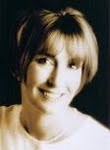
My name is Helen Carey, I am probably best known for my LAVENDER ROAD series set in London in the Second World War. I have always wanted to be a writer ever since I was a child penning pony stories! I am also a big reader and I think that has helped me to understand how novels work and what makes them successful. This has also led me into teaching creative writing. I now teach at several universities, specialising in story structure, and very much enjoy helping students maximise their potential.
Give us a flavour of your writing, where your books are aimed at in the market.
My main aim is to entertain. I am a great believer in page-turning-power and my favourite compliment is when people complain that one of my books has kept them awake all night! I try to make my novels accessible and engaging by creating characters and situations that readers can relate to and believe in. My books are primarily aimed at women, and they seem to appeal to women of all types and ages, perhaps because of the range of characters, but I often get messages from men too saying they have enjoyed them too.
You and I were members of the UK’s Romantic Novelists Association, which occasionally went through agonies deciding how to describe itself. It always seemed to come back to describing itself as Romantic because Romance never goes out of fashion. Do you describe yourself as Romantic?
I certainly describe myself as romantic, but my books are perhaps more of a mix! Yes, there are lots of romantic elements and one or two big love stories, but I like to explore other emotions too. The basic theme of the LAVENDER ROAD books, for example, is about courage and how people, especially women, coped with the dangers and challenges of wartime life. THE ART OF LOVING on the other hand is romance through and through – it was even shortlisted for The Romantic Novelist New Writer’s Award some years ago. SLICK DEALS is more of a suspense novel, but forcing my oil trader heroine to get involved with the cool, American environmentalist, Nick Jardine, certainly adds an extra romantic frisson to the story!
Your writing career encapsulates the biggest changes in the publishing industry since Caxton had a good idea involving ink and metal plates. Do you wish that you were a writer living in the calm and predictable days of old-fashioned book publishing, or do you like the dynamic changes we’re going through?
I love the digital revolution! Mainly because it has given me an opportunity to republish my pre-existing books to a whole new audience. I also like having more control over my own work. But I also know that change is scary and nobody really knows how the publishing industry is going to develop in the future. The good old fashioned book publishing process was great for those of us who got picked up and published, but digital publishing has opened the door to lots of new writers and ideas. Anyone can be ‘published’ now and that’s great. The days of agents and publishers acting as literary gatekeepers have long gone. Yes, there is plenty of rubbishy stuff out there, but readers are surely capable of working out for themselves what they are likely to enjoy and that means that really good books will always rise to the top of the pile.
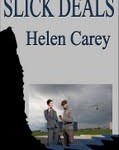 You’ve decided in the last couple of years to digitally publish your own work. Any insights into how you approached that.
You’ve decided in the last couple of years to digitally publish your own work. Any insights into how you approached that.
When Kindle got going I realised that I had never sold the digital rights to my early novels so I looked into ways of getting them up on line. As they’d been published by Orion I didn’t have them on disc so I got them scanned in, and then edited and formatted them myself. It took quite a while to do but it was good to have the opportunity to do a few extra tweaks along the way. I bought ISBN numbers, designed covers, wrote blurbs and decided prices. I then borrowed instructions from a writer friend who had already gone through the process and uploaded the books to Amazon and Smashwords (for iBooks, KOBO etc). Luckily her instructions were brilliant and detailed and the whole process went incredibly smoothly.
Any advice?
Get good instructions from someone who has already done it! Then think carefully about how to categorise your book. And remember that people will be able to read the first few chapters before buying so make sure they are perfect. Promoting your book is another whole issue. I find Twitter, Facebook and a Blog a good combination. Creating a really readable book helps enormously of course, because once people start liking it and buying it Amazon will take over a lot of the promotion work for you.
Any advice for US writers wanting to get a foothold in the UK?
The answer is to write a great novel! In my experience readers don’t mind where the stories are set, they just want a really good story and great characters. My wartime novels, set mainly in London and Europe are extremely popular with readers in the US and Australia and New Zealand. As long as the books are listed on Amazon.co.uk as well as Amazon.com there shouldn’t be any problem interesting readers from different countries. Getting reviews on each site helps too. As far as promotion is concerned, social media is completely international, so making contacts all over the world is easy!
If you were starting the process again, would you do anything differently.
One thing I considered, but decided against, was the idea of giving books away free. Some people say it’s a good promotional tool but I feel it sends the wrong message and undervalues writers’ work.
Sorry to be cheeky, but is Indie financially viable?
Yes, definitely. But then I was lucky that I had four pre-existing books and another new one, SLICK DEALS, all ready to go. There’s no doubt that having a number of books available on line really helps. If people like one, they then buy the next and so on. For UK, US and European sales Amazon pay a royalty of 70% of the sale price, so for each £3/$4 book I get roughly £2.00/$3.00 which is more than double the 10% royalty I got from Orion for each paperback.
How do you deal with the Big A? Amazon, I mean. Do you sometimes wake up at night thinking … what if Amazon suddenly disappeared, or it was all a dream? Do you have a Plan B?
Who knows what will happen! We can’t see into the future but we can keep ourselves poised to take advantage of new opportunities as they occur! I don’t think Amazon will disappear, but it would be worrying if they gained a total monopoly. That’s why it’s important for authors and readers to support other digital publishers like iBooks, Kobo etc.
Can you tell us something about the book you’re working on? And your writing plans?
I am just about to start writing the fourth in the LAVENDER ROAD series. It is called LONDON CALLING and will be set in 1943. It picks up on many of the earlier characters, Jen Carter, Katy Parsons etc., but I will also be taking up the story of the young nurse Molly Coogan who has only had a small role in the previous novels. Exhausted by her relentless nursing routine and compelled to live with an awful secret, she longs to get away from wartime London, but when her wish is granted she finds that she has jumped out of a very calm frying pan into a tumultuous and life threatening fire! I’m hoping to have it finished by the end of this year.
Indie publishers need to buy in editorial guidance for their work … true or false?
There are two completely different processes of course, the story itself and the details of grammar, spelling etc. The latter just takes time and a careful eye, the former is much harder to get right. I was lucky in having Rosemary Cheetham (as she then was) as my editor at Orion. I learned a lot from working with her on my novels, and I spend a lot of time editing my students’ work, so I feel reasonably confident about dealing wtih my own work. That’s not to say I don’t run things past as many people as I can to get their comments. The hard thing is knowing what to take on board and what to ignore!
One of the most memorable characters in your Lavender Road series is Ward Frazer, who is Canadian. What was your secret ingredient for Ward and does he have a brother?
Yes, Ward Frazer, the Canadian air force pilot (and subsequently SOE agent) who first appears in Lavender Road is very popular. He is physically attractive of course, but I think his real appeal comes from his nonjudgmental acceptance of other people’s foibles, his mental strength and physical courage, and the romantic tragedy of his past. Also perhaps because he is the only person to see the true quality in the young, sickly Katy Parsons. He doesn’t have a brother, but he does have a cousin who will appear in LONDON CALLING!
You’ve just been on a research trip to Italy. This has to be the best side of being a writer, off to warm climates after a beastly winter. Is there a better job out there, and if so what?
Yes, research trips (or holidays, as my husband calls them!) are one of the perks of being a writer. Writing is a great job, independent, satisfying, creative, possibly lucrative. But it does have its hard side too, the eye strain, the brain strain, the worry about losing the pace, the danger of becoming antisocial and reclusive, the long hours at a hot keyboard, and the nights broken by flashes of clarity that have disappeared by morning!
Thanks for chatting with us and sharing your experience, Helen. You’re going to stick around and answer any questions and comments that come through. And if anyone wants to rootle through your biog and blogs, here they are …
http://www.helencareybooks.co.uk
http://helencareybooks.wordpress.com
http://www.twitter.com/helencareybooks
Youtube Book video
April 22, 2013
Of Deadlines and Commitments
After years of writing, editing, rewriting, more editing, and a protracted series of “revise and resubmits” for a string of agents I never signed with, I was giddy to have my second book under contract before it was finished. I celebrated having a deadline. True, I’d been asked when I could have the book ready and my answer became my deadline. But finally, someone cared if and when I finished a book. This was heady stuff.
I had the vague impression that I wrote fast and the deadline seemed achievable. I was still wrapped up in promotion for my first book. When that slowed down, I spent time with long-neglected family. I wrote some more, then came the holidays. Sometime during the holidays, in an unrelated email exchange with my agent, she mentioned how she couldn’t wait to read the new project. Full of holiday cheer, I emailed her back with a merry, “Soon.” On January 2, I had a panic attack. I was nowhere near my word goal and my deadline loomed. I buckled down.
I was at my computer every morning by nine. I read what I’d written the day before to immerse myself in my world, revising as I went. Then, I started the next chapter. Even though I wrote long into the evenings, my word count was not growing fast enough. I contemplated setting my hair on fire. Had I always written this slowly? Something was wrong.
I turned to my favorite tool for analyzing data–Excel. I tracked the number of words I wrote every day for two weeks. I was astonished at the variation. Some days I wrote 4,500 words. Other days I wrote 350. My daily word counts were all over the place. Some days I spent more time than I’d realized revising. And, oh yeah, some days I had other commitments–blogs, twitter chats, book festivals, signings, family issues, migraines. I finally figured out what I should have known to begin with. Even though writing is my full time job, some days that job means I’m doing things other than putting words on the page. I had to figure those days in. I also needed to take family time, holidays, and migraines into account.
The process of editing the prior day’s work to get started works for me, but I needed a more accurate way of predicting how long it takes me to write a book. I calculated an average number of words I wrote per day over time (with all variables included) and created a spreadsheet. I took my target word count for a project and divided that by the average number of words I wrote in a day. That told me how many weeks it would take me to write the book. I added in things like “draft cooling,” self-editing, beta readers, etc. Then I added columns to track my actual progress, so I could see each week if I was on schedule or needed to put in some time on Saturday. Now I have a template, and every time I start a new book, I just plug in my target and record my actual word count each day.
This method works for me, because I can no longer tell myself I have plenty of time when I really don’t. Scrivener users have a built in tool that helps manage targets, but for whatever reason, I haven’t been able to warm up to Scrivener–perhaps because I’m a creature of habit and have an outlining system I’ve used for years in Excel. I’m sure my accountability system wouldn’t work for everyone. Some folks hate Excel. But for me, anyway, having a system is critical.
How do you stay on track?

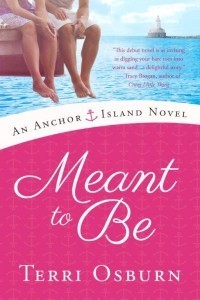

![UnLocktheTruth_w7273_750(2)[1]](https://i.gr-assets.com/images/S/compressed.photo.goodreads.com/hostedimages/1383251042i/6459089.jpg)
![robenaIMG_6729R (2)[1]](https://i.gr-assets.com/images/S/compressed.photo.goodreads.com/hostedimages/1383251042i/6459090.jpg)


